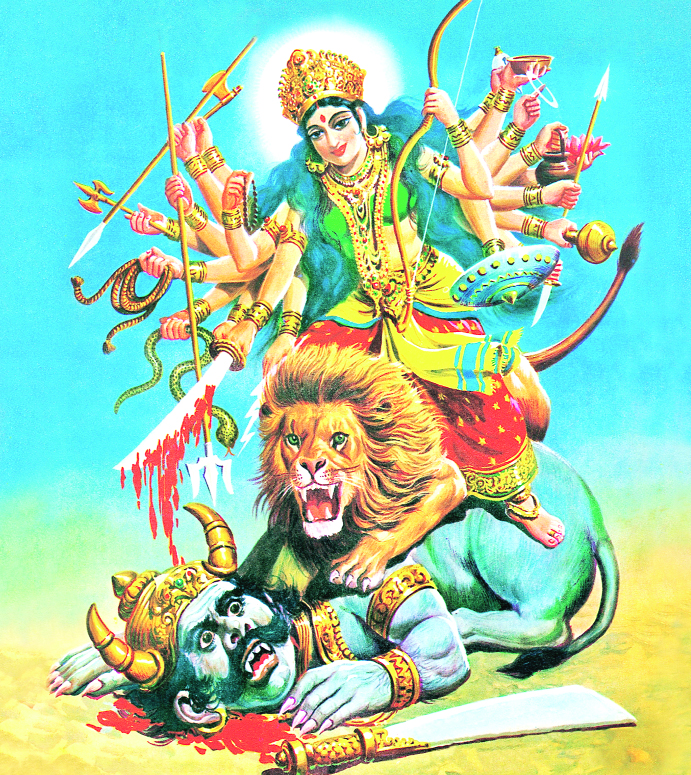Sri Sri Ravi Shankar
Navratri is the time when we celebrate the victory of the Devi over the demon Mahishasura. Durgasapatashati describes the war between the two. The Devi single-handedly slayed the demon who kept changing forms from buffalo to a lion, to a man, and his huge armies with great vigor. But if everything is one energy, how come there was a conflict between the two in the first place?
In one reality defined by Quantum Physics, everything is only atoms, a wave function, just energy.
But when you go a step below, there is a reality where there are differences. For instance, the door, tables, and chairs are all made up of the same element. But you don’t sit on the door. They all have unique purposes. Charcoal and Diamond are made up of carbon but do you wear charcoal in your ears?
Understand the concept of two realities with the sun – The sun never sets. It is where it is, fixed in its location. Yet, sunrise and sunset happen. When the sun rises, everything wakes up. All birds sing. And when the sun sets, everything sleeps. You cannot say that since the sun is not setting in reality, birds should be flying at night. In one reality, the sun never sets. In another, sunrise happens and the creation wakes up.
The duality of good and bad, right and wrong all exist in the apparent reality. That is why the ancient Rishis called life a Leela. Leela means a play. They never called the life of Shri Ram a struggle or sangharsh. They called it Ram Leela. When you look at life as a play, you feel light. Life seems fun.
Conflicts exist in a Leela. Gunas or qualities always fight with each other in a Leela. Mahishasura represents tamoguna, the quality that brings up delusions, lethargy, attachment, and lack of knowledge. The Devi represents Sattoguna, the quality that brings up balance, lightness, and joy. When sattoguna goes up, tamoguna has to go down.
The fight between devas (angels) and asuras (demons), and the gunas did not happen sometime, somewhere. They are happening all the time. That is what makes life interesting and celebratory. When sattoguna or the qualities of light and joy shine through, we love to celebrate.
Yet, on the level of the Nirguna Brahman (the universal energy without attributes and form), there is nothing – no duality, only bliss. Navratri is an auspicious time to go back to our source which is all bliss. It is the celebration of the spirit which alone can destroy Mahishasura. When a seeker raises their prana (life force energy) with prayer, silence, meditation, and fasting, they overcome tamoguna with the help of Devi Shakti and get back to their source.
Though Navratri celebrates the victory of good over evil, of sattoguna over tamoguna, it is not just that. From the Vedantic point of view, the victory is of the absolute reality over the apparent duality. That is when you can access the Brahman which is all bliss.


